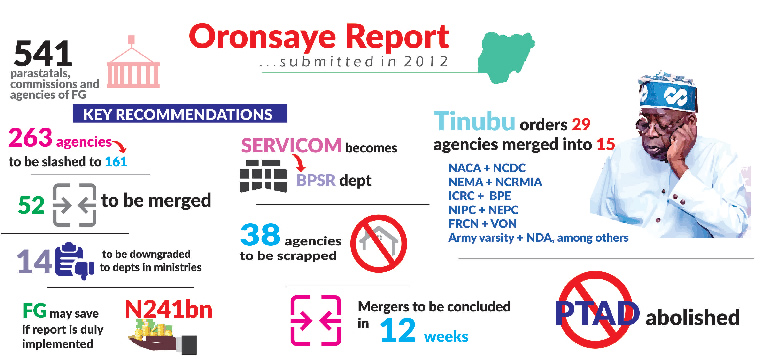I write to express my concern regarding the implementation of the Orosanye report and its impact on the fate of out-of-school children in our beloved nation, Nigeria.
While I appreciate the government’s efforts to streamline agencies, commissions, and departments, I believe there are further steps that need to be taken to address the pressing issue of education and the millions of children currently denied access to it.
The Orosanye report proposes the merger of the Nomadic Education Commission with the National Commission for Mass Literacy, Adult Education, and Non-formal Education. While consolidation can be a viable solution in some cases, we must critically evaluate the effectiveness and outcomes of such a merger.
The issue of out-of-school children requires a comprehensive and targeted approach that recognizes the unique challenges faced by different marginalised groups, including nomadic communities.
However, in my opinion, the scope of reforms should extend beyond this merger. For instance, the Universal Education Commission, which has been in existence for decades, should be re-evaluated. This commission duplicates the work of local government education authorities, leading to inefficiencies and a lack of accountability. It is disheartening that despite the existence of these commissions, over 20 million children in Nigeria are still unable to access free and compulsory education.
To address this challenge, I propose the establishment of a National Commission for Local Education. This commission should be empowered to work closely with local communities, leveraging their knowledge and resources to develop effective strategies for getting our children back to school. This localised approach will enable us to understand and address the specific barriers faced by each community, be it lack of infrastructure, cultural biases, or economic constraints.
Moreover, we need to prioritize the allocation of resources to education. The current budgetary allocation to the education sector is inadequate to meet the needs of our growing population and the demands for quality education. As we strive to streamline commissions and agencies, it is crucial that we redirect funds towards ensuring accessible and quality education for all children.
This includes investing in teacher training, infrastructure development, and innovative educational technologies that can bridge the gap between urban and rural areas.
In addition to these structural reforms, we must engage in a nationwide campaign to raise awareness about the importance of education and the consequences of leaving children out of the schooling system. This campaign should involve various stakeholders, including government officials, civil society organisations, religious leaders, and parents.
By fostering a collective understanding of the value of education, we can mobilise communities to take ownership of the issue and actively participate in finding solutions.
Sir, I urge you to consider these recommendations and take decisive action to address the plight of out-of-school children in Nigeria. The future of our nation depends on the education and empowerment of its youth.
By scrapping redundant commissions, establishing a National Commission for Local Education, and increasing investment in education, we can pave the way for a brighter and more prosperous future for all Nigerians.
The time for change is now. Let us seize this opportunity to transform the fate of our out-of-school children and ensure that every child in Nigeria has access to quality education.
Tijjani Mukaddas, a Humphrey Fellow, writes from Vanderbilt University, USA

 Join Daily Trust WhatsApp Community For Quick Access To News and Happenings Around You.
Join Daily Trust WhatsApp Community For Quick Access To News and Happenings Around You.


